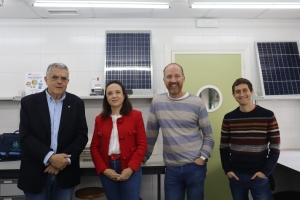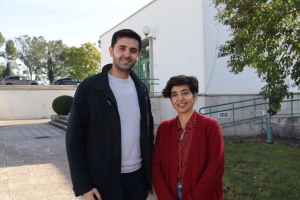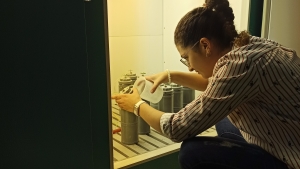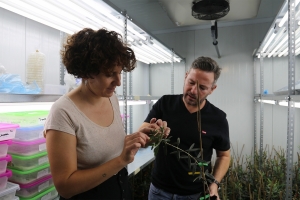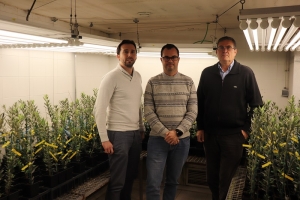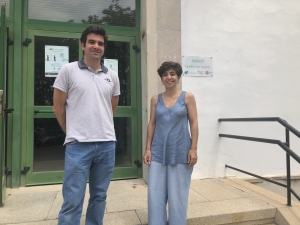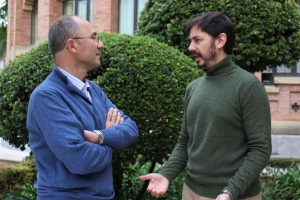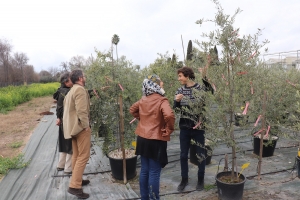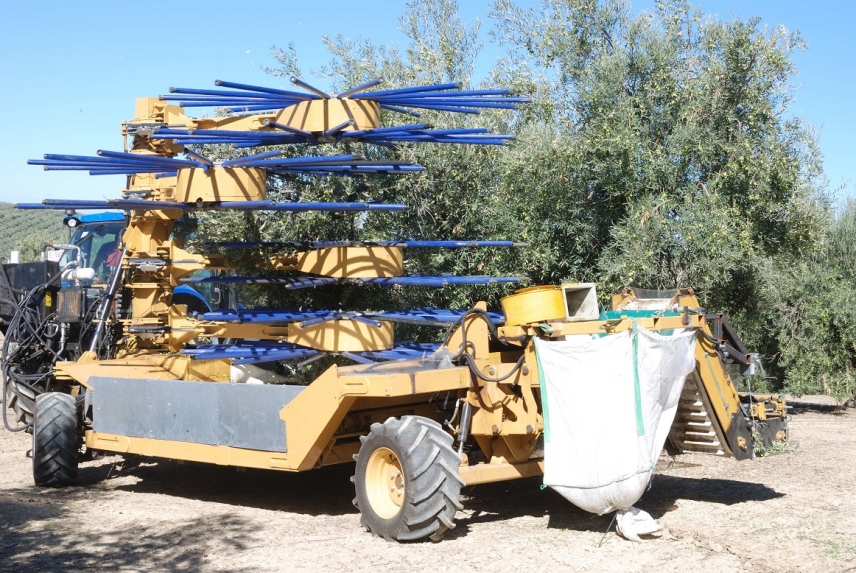More energy and more oil: photovoltaic plants and hedgerow olive groves are more productive on the same land
A model developed by the University of Cordoba simulates the interaction between solar collectors and crops at an “agrivoltaic” plant, proving that the two activities are more efficient when conducted jointly, as they create synergies
Artificial Intelligence tool designed to identify olive varieties based on photos of olive pits
The Ucolivo group, within the framework of the GEN4OLIVE European project, is participating in the development of a neural network trained with the largest photographic database of olive endocarps
A laboratory test demonstrates that applying silicon to olive leaves promotes their growth
A DAUCO team finds that silicon is a potential means of promoting plant growth, probably by favoring the absorption of nutrients such as potassium
Restrictions on the use of certain agrochemicals, such as fertilizers or pesticides, in the field of agribusiness have boosted interest in looking for alternatives to protect and strengthen crops like olive groves. In this context, a team from the María de Maetzu Unit of Excellence in the Department of Agronomy at the University of Cordoba has verified how an element that is naturally present in the soil, silicon, can be used to bolster the growth of plants by favoring their absorption of potassium.
A study analyzes the competition between species of the fungus that causes olive anthracnose
After analyzing the relationships between the dominant species of Colletotrichum in Spain and Portugal, a study by the Department of Agronomy at the UCO suggests that pathogens, once established, are difficult to displace, even by other more competitive ones.
A study analyzes the relationship between olive roots and Verticillium wilt
A new method developed at the UCO has tested how substances secreted by the roots of olive trees impact infection by the Verticillium dahliae fungus, and studied its effects on different varieties of olive trees
One more step towards understanding the olive family tree: the evolution of the genus Olea is clarified
The University of Cordoba collaborated with Italian universities on a studyto identify the temporal dynamics shaping genome structure during the division of species in the genus Olea.
FROOTS PROJECT | Assessing stress in olive tree rootstocks to make them more resilient to global change
The European FROOTS project crossbreeds olive tree varieties to achieve genetic improvements to deal with the impact of environmental stresses
Climate change will cause a loss of olive production in Andalusia
A study led by the University of Cordoba estimates close to a 30% decrease in production in the province of Seville, which will most suffer the effects of climate change
OLIVE MIRACLE. An application to predict the future of the olive tree
The European 'Olive-Miracle' project is developing a model that predicts the behaviour of olive groves in the face of climate change throughout the Mediterranean
A new harvester decreases the cost of olive picking in traditional olive groves
The University of Cordoba Mechanization and Rural Technology research group designed a harvester that improves the profitability of traditional olive farming
Productive traditional olive groves, which make up 70% of Andalusian olive farming, are in a complicated situation in terms of financial sustainability. The lack of mechanization so vital to picking olives has made new already-mechanized plantations such as intensive and superintensive olive groves surpass traditional olive groves, which still spend 40% of their harvesting budgets on picking.


